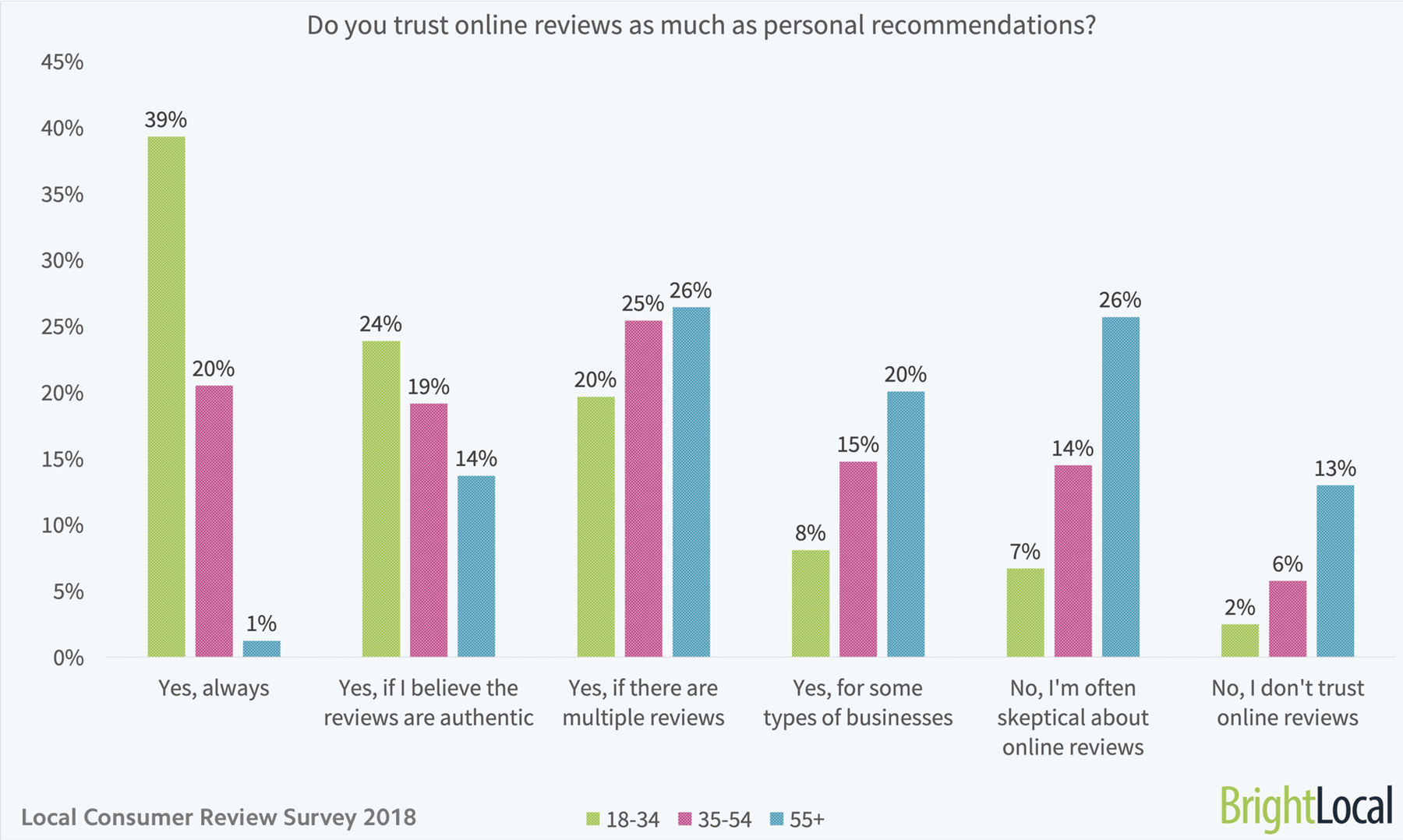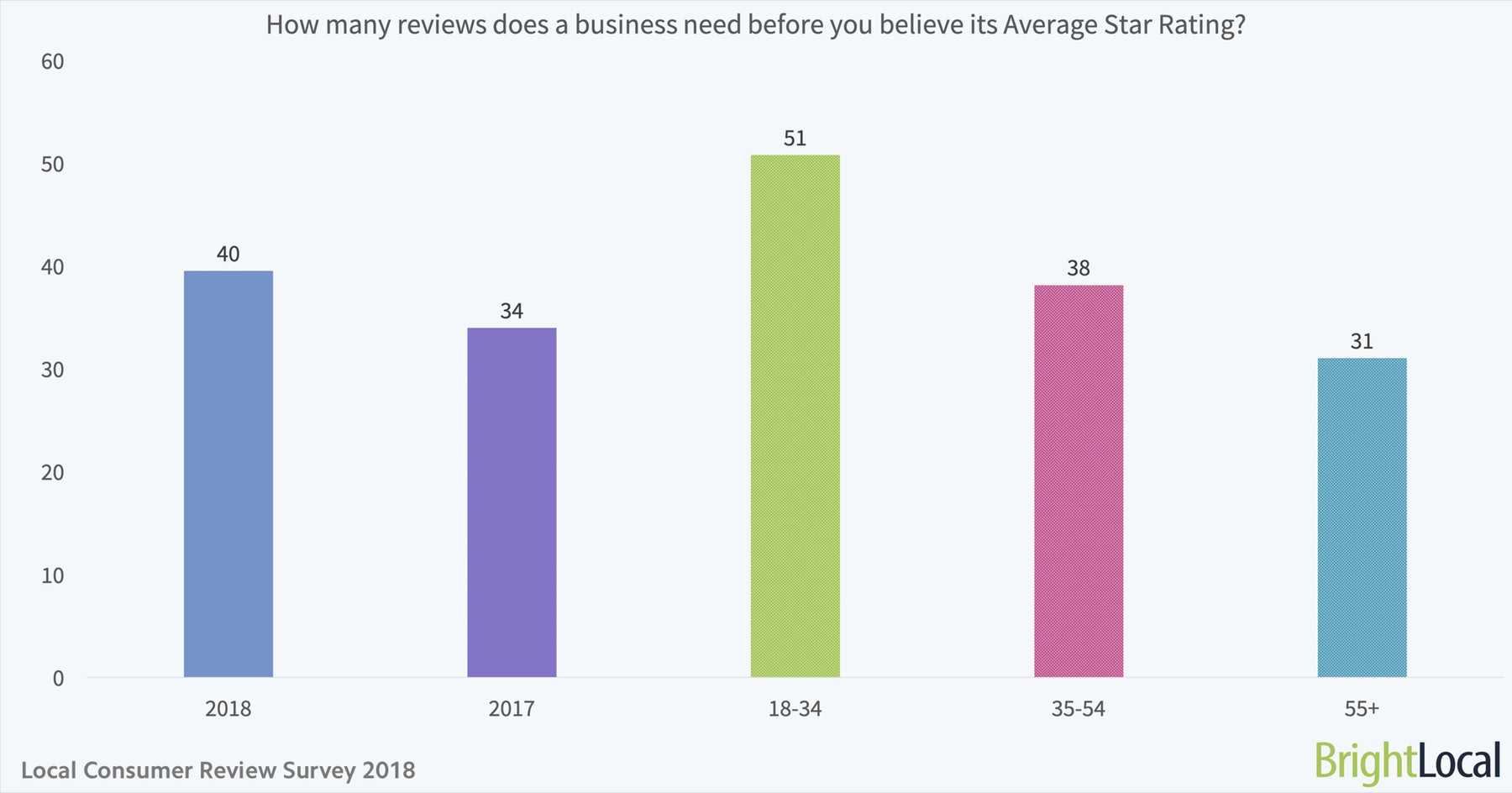12 Jan 15 Online Review Stats Every Marketer Should Know via @jonleeclark
Every marketer worth his salt knows that online reputation is everything.
Whether you own or manage a small mom and pop restaurant, a computer software company, or a chain of coffee shops, your customers are likely to look for you online.
That means one of the first things they’ll do is look for online reviews about your business.
Why Reviews Are So Powerful
Platforms like Yelp, Google My Business, and TripAdvisor are a boon for consumers as it gives them a platform to learn about businesses before patronizing them.
For business owners? Not so much.
It seems that no matter how hard you try, you’re bound to get that one bad review that could potentially overshadow all your glowing reviews.
Online reviews, however, are an unavoidable part of doing business online.
Among Millennials, for example, reviews are empowering, helping them make an informed and thought-out purchase decision (useful when you need to decide if a restaurant’s $15 avocado toast is worth it).
If you still aren’t completely on board, here are 15 online review stats that may change your mind.
1. Consumers Are Influenced by Both Positive & Negative Reviews
According to a 2016 report by PowerReviews, 82% of shoppers specifically seek out negative reviews. But, the reasons might surprise you.
Accompanying research by social commerce specialist Revoo indicates that consumers spend five times as long on a site when they interact with negative reviews, with a 85% increase in conversion rate.
This aligned with other data that was reviewed. A near-perfect rating is less credible and leads to consumer skepticism if reviews are too positive.
2. 91% of Young Consumers Trust Reviews
BrightLocal’s local consumer survey shows that 91% of consumers between the age of 18 to 34 are big believers of online reviews, trusting them as much as personal recommendations.


A closer look at the data, however, shows that this finding is more nuanced than it appears to be.
For example, only 39% of young consumers always trust online reviews. Meanwhile, 24% of respondents yes, but only if they believe the reviews are real.
Another 20% said that they trust a review if it’s backed several other reviews.
Interestingly, only 8% said they’re conscious about the type of business when looking at reviews.
3. The More Reviews, the Better


BrightLocal’s research also found that, on average, consumers require a business to have 40 online reviews before they believe its average star rating.
This is up from 34 in 2017, which may suggest higher expectations among consumers when it comes to the veracity of reviews.
This is good news for new businesses, as it means that a few bad reviews are unlikely to dissuade consumers, provided they don’t derail your average star rating or score.
4. Most Consumers Don’t Trust Advertising
While online reviews are seeing a rise in consumer trust, the same can’t be said for traditional advertising.
According to Edelman’s Trust Barometer, fewer people are trusting advertising, with 3 in 4 consumers saying that they avoid advertising altogether.
If anything, this finding is a sign of the times. People are tired of ads being pushed on their faces, especially ads that belie the truth of the quality of the products and services they get from brands.
5. Reviews Have an Observable Effect on Revenue
One study published on Harvard Business Review found that for every one-star increase a brand gets on Yelp, that business sees a 5-9% increase in revenue.
A closer look at the study reveals even more important information.
For starters, this effect was observed in independent restaurants. Ratings don’t affect chain restaurants.
Consumers are also more responsive to Yelp ratings if they contain more reviews, suggesting that the more detailed a review is, the more trustworthy it is.’
6. A Few Reviews Are Still Better Than None


Research by the Spiegel Research Center reveals that the likelihood of a product getting purchased increases by 270% when it gets five reviews.
After a certain point, however, the number of reviews no longer translates to a higher likelihood of a purchase.
7. Review Importance Rises the More Expensive a Product Gets
The same Spiegel study found that reviews have a much larger effect on purchase likelihood when it comes to more expensive items.
When reviews are displayed for higher-priced products, their conversion rate increased by 380%. In contrast, reviews shown for lower-priced products increased by 190%.
These findings are hardly surprising.
The more money consumers have to spend on an item, the more likely they’re going to care about what people have to say about it.
8. Reviews Are Just as Important Among Jobseekers
If you thought consumers were the only ones concerned about reviews, think again.
A study published on Harvard Business Review found that employers with a bad reputation ended up spending 10% more per hire.
As competition for talent in certain industries gets tougher, companies will have no choice but to be more conscious about their employer brand if they wish to attract top talent.
9. Responding to Reviews Matters to Renters – A Lot!
A recent study conducted by Kingsley Associates found that online reviews were not only important for renters, but 51% of potential residents expect to see management responses to all online reviews.
10. Recency & Consistency are Important to Travelers
The results of a TripAdvisor study uncovered the significance of reviews’ influence on booking decisions. 78% of respondents focus on the most recent reviews by fellow travelers.
Despite this focus recency, 39% of respondents say they ignore extreme comments reading, on average, nine reviews before making a decision on booking a hotel or a restaurant.
11. Shoppers Trust Text Over Images & Video
Despite the popularity of including photos in reviews, 43% of shoppers still say that text-based reviews influence their purchase decisions most vs. photos (33%) and video (24%).
12. Tiny Subject Line Changes Can Get More Reviews
When soliciting reviews, most businesses send an email post-purchase.
Yotpo studied the subject lines of 3.5 million of these post-purchase review request emails with the goal of discovering what works and what doesn’t when asking customers for reviews.
While this is much more than a single statistic, here is a synopsis of the top subject line tweaks to get more reviews:
- Emotional appeal doesn’t have a big impact on review response.
- Include your store name to increase reviews.
- Incentives inspire more reviews in every industry.
- Ask a question in the subject line.
- Exclamation points boost reviews for food and tobacco businesses!
- Avoid using a totally uppercase word in your subject lines.
13. The Average Business on Google Has 39 Reviews


BrightLocal’s Google Reviews Study shows that the average local business that appears on Google has 39 reviews.
This number, however, varies greatly between industries.
For example, among hotels, the average number is 309 reviews. This is followed by restaurants, at 220 reviews.
Niche services, like legal, accounting, and construction, see much less, at 11, 7, and 3 reviews, respectively.
14. Three Stars Is the Magic Number
Synup’s recent State of Retail report analyzed 5 major retailers across 560 locations, and surveyed 837 consumer and 288 business executives to better understand how they find, trust, and choose retail brands.
They found 82% of shoppers won’t choose a retailer with less than 3 stars. So, while negative reviews can be helpful for discerning shoppers, too many and your risk losing business altogether.
15. Most Americans Do Not Leave Reviews
Despite their impact on purchase decisions, most Americans do not leave product reviews on a regular basis.
In fact, according to Pew Research Center, a full 38% “never” leave reviews on products and services.
Even more surprising, despite all the social pics of what they are eating, 48% of Americans do not leave reviews for restaurants.
Only about 10 percent “always” or “almost always” leave reviews on products and services.
This reinforces how important it is to ask and encourage consumers to leave reviews on your products in order to pick up the momentum you need.
The Bottom Line
All these statistics point to one unavoidable truth: online reviews are important and they’re here to stay.
Simply put, online reviews are directly linked to consumer trust and creating social proof.
Rather than fear them, you should look at them as a way to get a direct line to your customers.
If you have yet to begin your efforts to manage your online reputation, now’s as good a time as any to get started by doing the following:
- Educate your customers on the importance of leaving reviews, but make sure to communicate that these reviews will help you improve your business, which can only be a good thing for them.
- Take charge of your brand on all review platforms. Respond to feedback and make sure complaints are managed in a timely and orderly fashion.
- Claim your Google My Business listing to ensure any information about your business on Google is accurate and updated.
- Ask and encourage your customers to leave a review on your product or service.
More Resources:
- Where & How to Get the Right Reviews for Your Business
- 85% of Consumers Think Local Reviews Older Than 3 Months Aren’t Relevant
- 5 Types of Social Proof to Use on Your Website Now
Image Credits
In-Post Image #1: BrightLocal
In-Post Image #2: BrightLocal
In-Post Image #3: Spiegel Research Center
In-Post Image #4: BrightLocal
Sorry, the comment form is closed at this time.